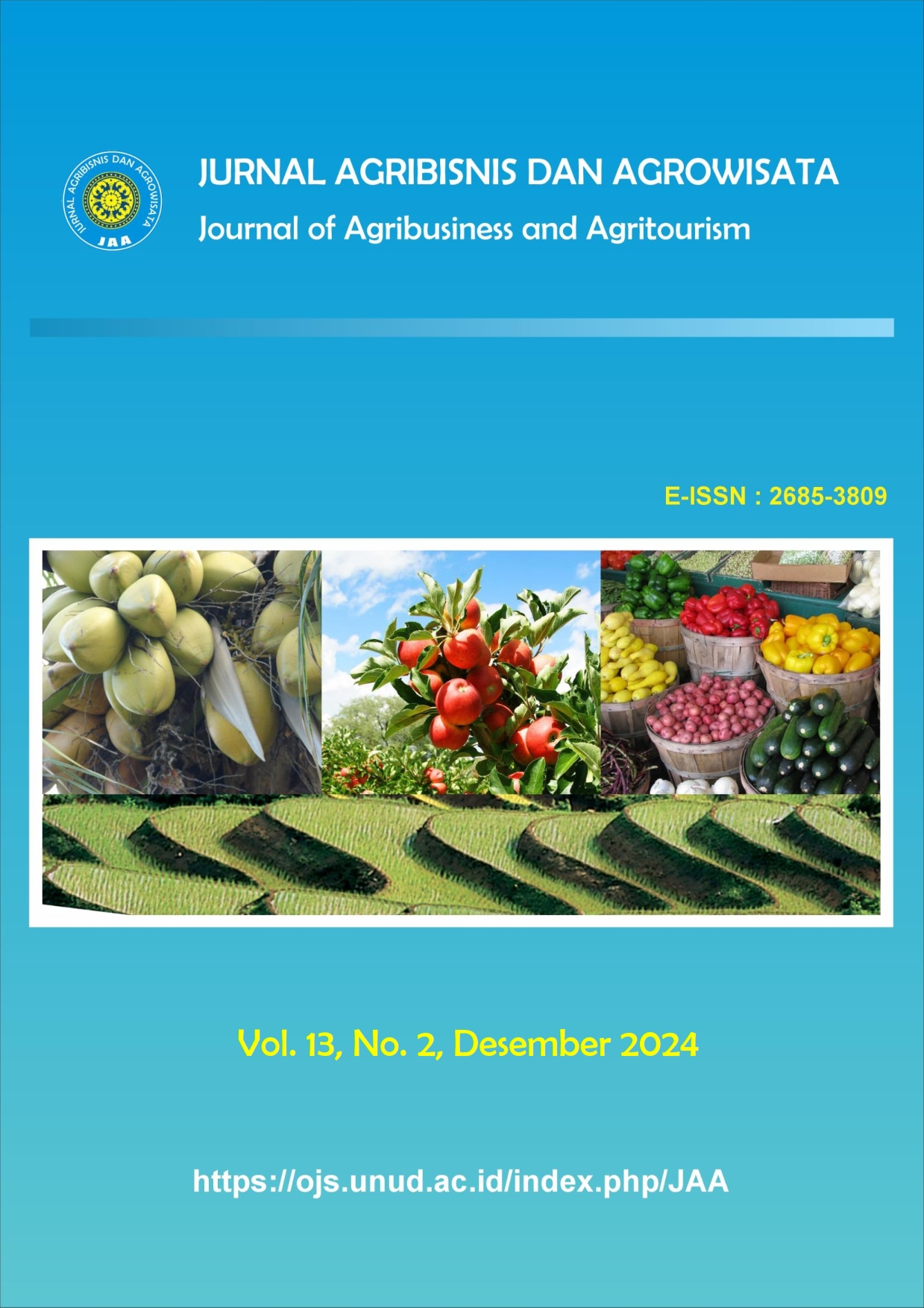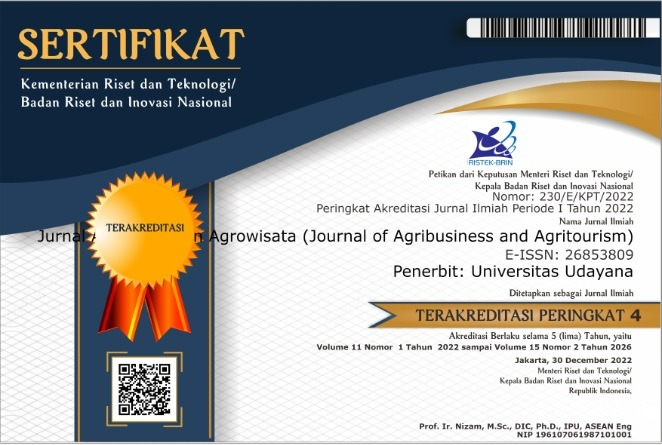Peranan Masyarakat dalam Keberhasilan Agrowisata Taman Edelweis Desa Besakih, Kecamatan Rendang, Kabupaten Karangasem
Abstract
Community's Role in the Success of Edelweis Village Agriculture Park Besakih, Rendang District, Karangasem District. At the beginning of the emergence of the tourism industry in Indonesia from a national spatial perspective, tourism development was only concentrated in a few locations, such as on the islands of Bali, Java, North Sumatra and South Sulawesi. But now the development of tourism development is running quite rapidly after it is realized that the tourism industry is the largest non-oil and gas foreign exchange earner in the world. Karangasem Regency is one of the areas in Bali which still has its own uniqueness with the traditional culture of every village in the Karangasem Regency area, one of which is Besakih Village which is developing the Edelweiss Park agrotourism with the potential of 4A (Attraction, Amenity, Accessibility, Ancillary) which has been implemented. As a result of the impact of Covid-19 agro-tourism has become threatened, so with this the aim of the research is to look at the role and involvement of the community and community relations in the success of agro-tourism at Edelweis Karangasem Park. The data analysis method used is descriptive statistical analysis with a questionnaire instrument. There were 41 samples in the study who were people around agro-tourism. The results of the study show that community involvement in the 4A concept of agro-tourism is included in the good category, meaning that the community is directly involved in the 4A concept in Taman Edelweis agro-tourism both from Attraction (75.5%), Amenity (71.0%), Accessibility (72.8%), and Ancillary (75.7%). The role of the community in the success of agrotourism is in the high category with the role of the community in icreasing the number of visits to Edelweis Park agrotourism (73.9%), the impact of agrotourism on the community (76.3%). There is a significant relationship between community involvement in the 4A concept and the success of Edelweis Park agrotourism through the Chi Square (X2) test according to the phenomenon that occurs seen from the enthusiasm of the community to improve the surrounding economy by building agrotourism so that it is famous in the wider community and preserving the surrounding nature so that its beauty is maintained.
Downloads
References
Budiarti, D. T. 2013. Pengembangan Agrowisata Berbasis Masyarakat pada Usaha Tani Terpadu guna Meningkatkan Kesejahteraan Petani dan Keberlanjutan Sistem Pertanian. Ilmu Pertanian Indonesia (JIPI), 18, 200202.
Cooper, J. F. 1995. tourism Principles and Practice. London: Logman.
Hampton, M. P. 2015. Power, Ownership and Tourism in Small Island: Evidence from Indonesia. Jurnal World Development, 70: 481-495.
Herdian, D. 2019. Peran Masyarakat Dalam Pengembangan Desa Wisata Berbasis Masyarakat. JUMPA, 6 Nomor 1, 63-86.
Mirzuki. 2002. Metodologi Riset . Yogyakarta: Prasetya Widi Pratama.
Pitana, I., & Sarjana, I. 2020. Agrowisata, Pariwisata Berbasis Pertanian. Singaraja, Bali: Mahima Institute Indonesia.
Sahputra, A. 2021. Peran Masyarakat dalam Pemanfaatan dan Pelestarian Jasa Lingkungan di Kawasan Simarjarungjung. 4-16.
Sugiyono. 2018. Metode Penelitian Kualitatif. Bandung: Alfabet.
Zoto, S. Q. 2013. Agrotourism- A Sustainable Development for Rural Area of Korca. Jurnal Euroean Academic Research, 1, 210-223







